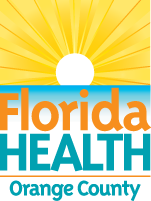Orange County Tobacco Free Partnership Congratulates the Consulate of Mexico for Adopting a Smokefree Policy
March 09, 2018
The Florida Department of Health’s Tobacco Free Florida program and the Orange County Tobacco Free Partnership are recognizing The Consulate of Mexico in Orlando for adopting a written smoke-free policy at their worksite. Tobacco Free Florida offers a variety of resources to help your business limit costs while creating a supportive workplace environment that encourages your employees to quit tobacco.
As Florida businesses navigate the economic uncertainty of the future, it is increasingly important to consider costs, productivity losses, and staffing expenses to stay competitive in the marketplace. Many businesses are discovering that addressing something as simple as tobacco use in the workplace can have a profound effect on profitability. “A tobacco-free environment helps create a safer, healthier workplace” – shared Mexico Consul Juan Sabines, Consul of Mexico in Orlando, FL.
Despite the growing trend of smoke-free policies and the substantial decrease of smokers in the state, many of Florida’s most vulnerable are still involuntarily affected by secondhand smoke, which has hundreds of toxic chemicals including about 70 that are known to cause cancer. 1 Secondhand smoke greatly increases the risk of lung cancer, which is Florida’s number-one cancer killer. 2 Each year, primarily due to secondhand smoke exposure, an estimated 7,300 non-smoking Americans die of lung cancer.
“We are delighted The Consulate of Mexico has joined the Tobacco Free Florida program by adopting a smoke free policy for their worksite,” said Dr. Kevin Sherin, Health Officer for the Florida Department of Health in Orange County. “This is another step toward making our community a tobacco free environment.”
Tobacco has killed more than 20 million people prematurely since the first Surgeon General’s report in 1964 and still today, smoking remains the leading preventable cause of disease and death in the U.S. 4 Floridians who want to quit any form of tobacco have access to Tobacco Free Florida’s FREE and proven-effective resources. Visit tobaccofreeflorida.com/quityourway to learn more.
Reference Sources:
1 U.S. Department of Health and Human Services. How Tobacco Smoke Causes Disease: The Biology and Behavioral Basis for Smoking-Attributable Disease: A Report of the Surgeon General. Atlanta, GA: U.S. Department of Health and Human Services, Centers for Disease Control and Prevention, National Center for Chronic Disease Prevention and Health Promotion, Office on Smoking and Health, 2010.
2. American Cancer Society. Cancer Facts & Figures 2012. Atlanta: American Cancer Society; 2012.
3. U.S. Department of Health and Human Services. The Health Consequences of Smoking—50 Years of Progress: A Report of the Surgeon General. Atlanta: U.S. Department of Health and Human Services, Centers for Disease Control and Prevention, National Center for Chronic Disease Prevention and Health Promotion, Office on Smoking and Health, 2014.
4. U.S. Department of Health and Human Services. The Health Consequences of Smoking —50 Years of Progress: A Report of the Surgeon General. Atlanta, GA: U.S. Department of Health and Human Services, Centers for Disease Control and Prevention, National Center for Chronic Disease Prevention and Health Promotion, Office on Smoking and Health, 2014





Connect with DOH